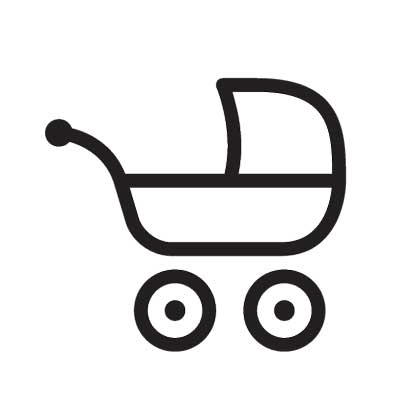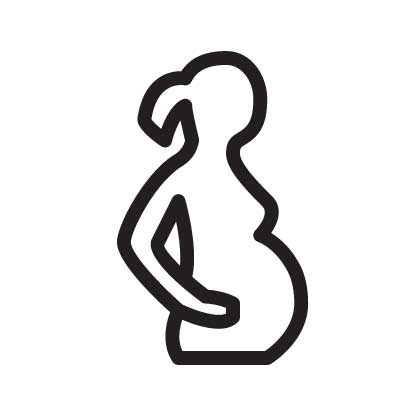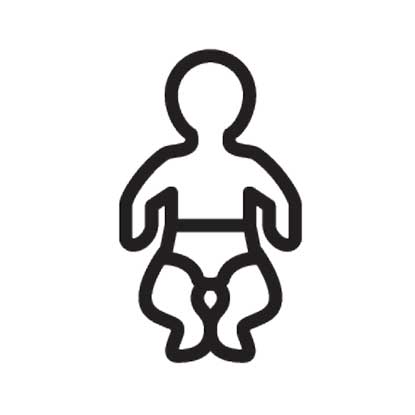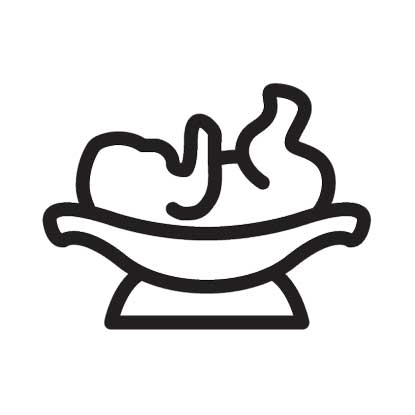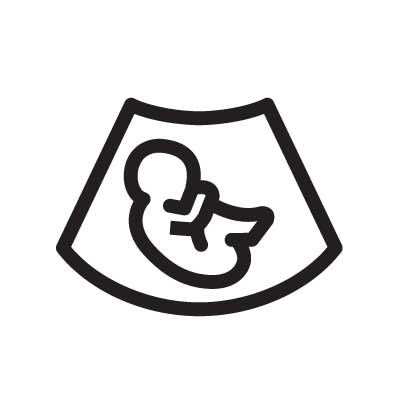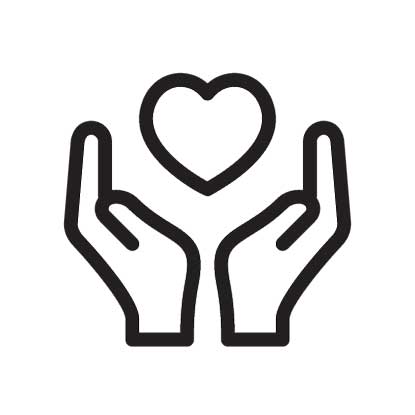Recovery after the delivery
Recovery after the delivery
Important to know
Recovery after the delivery
Blood loss
During the first week after the delivery, the blood loss will gradually decrease from bright-red (possibly with clots), to light-red and eventually brown blood loss. It is possible that you will have increased blood loss on days you move around a bit more.
The number of weeks that blood loss will persist depends on the person. Usually, blood loss will continue no longer than 6 weeks, with 8 weeks being the absolute maximum.
Uterus
The first das after the delivery you can experience afterpains. These are contractions from the uterus that make the uterus shrink again. At the end of your pregnancy the height of the uterus will be up to the midriff. Right after giving birth it will go down to the height of your bellybutton. During the postpartum period the uterus will continue to decrease in size until it falls under the pubic bone and can no longer be felt.
If the afterpains bother you a lot, you can take paracetamol or ibuprofen.
Menstruation and birth-control
It is hard to predict when you will start having you period again after giving birth. Among things, this depends on whether or not you breastfeed or use formula to feed your child. In case you breastfeed, it can take a long time (sometimes months) before you have your first period.
At the earliest you will start menstruating 4 weeks after the delivery. Sometimes it’s unclear if you are having your period or this is still blood loss from the delivery.
Watch out! Prior to your first period it is possible you are already ovulating and are fertile once more. Therefore, always remember to use birth-control even if you haven’t had your period yet.
Breasts
Regardless of whether or not you breastfeed, nearly every woman will suffer from engorgement during the postpartum period. This usually occurs on the 3rd and 4th day after the delivery. Engorgement can be painful, you can feel sick because of it, and sometimes you will experience a slight raise in your body temperature. If you breastfeed, engorgement will gradually disappear because a supply-demand-principal will occur in the production of breast-milk.
Even if you feed your child with formula, engorgement will gradually disappear because the breasts are no longer stimulated to produce milk. To decrease engorgement it helps to wear a supportive bra, also under the shower and during the night. In case the engorgement bothers you a lot you can take paracetamol.
Stitches and pelvic-muscles
Due to rupture or having had an episiotomy during your delivery you might have stitches. It is possible that these will bother you during the postpartum period. But even if you don’t have stitches, the area surrounding your vagina can feel sore and heavy. This feeling will subside after a few days. Take plenty of bed rest to give you pelvic area the chance to recover. The heavy feeling has to disappear within 12 weeks.
The first days after the delivery it is often more comfortable to pee while taking a shower. In this way, urinating will hurt less and you can instantly clear yourself. Possible stitches will normally dissolve on their own.
The pelvic-muscles are severely stretched during delivery. Additionally, they had already become weaker under the influence of pregnancy-hormones. That’s why it is very important for you to start training your pelvic-muscles. In this way, you will prevent problems with incontinence at a later age.
Defecation usually starts again 3 to 4 days after delivery. The first time can be quite scary, but it is important to know that nothing can happen to any stitches you might have.
Rest
Try to take some rest for several hours in the afternoon and spread visitations. For example, indicate on the baby-card what times you are resting. Allow yourself to be pampered by your environment and the maternity assistant and try not to start doing everything yourself too soon. After the postpartum period it is important to gradually start doing things again. Taking a nap in the afternoon while your baby is asleep definitely can’t hurt!
Emotions after the delivery
Having a child is an emotional rollercoaster for the mother as well as the father.
All feelings can be felt: Feelings of ultimate happiness and sitting on a pink cloud. But also insecurity: Am I doing it right? Can I handle this? Feelings of depression: Is this it? Am I suppose to enjoy this? ‘I know this is my child, but I don’t feel like a mother/father yet.’
The first days after the delivery most people live on adrenaline. After that the exhaustion strikes. For most women, the 4th day after the delivery is known as ‘the day of tears’.
All these feelings aren’t bad, they are part of it. Getting used to being a parent takes time. It isn’t always fun. It is important that you share these feelings with one another and talk about them. That way we can jointly keep track of if things are still going well with you.
If you are still feeling very emotional or not yourself after a couple of weeks, tell us or your general practitioner.
Your Partner
If you’re becoming a mother or father (for the first time or otherwise), a lot is going to change. You also need time to get used to this. Of course, you also have to learn how to take care of the child. Taking rest is also necessary for you as the interrupted nights count for the both of you. Our advice is to take a few days off during the post-delivery period so that the maternity assistant can teach you how to take care of the child. After the postpartum period it is also nice, if possible, to take a few days off, so the new mother isn’t all on her own all of a sudden.
General Recovery
Take the time for your recovery. Don’t expect too much of yourself. The more gradual you return to your every-day-life the easier it will go.
